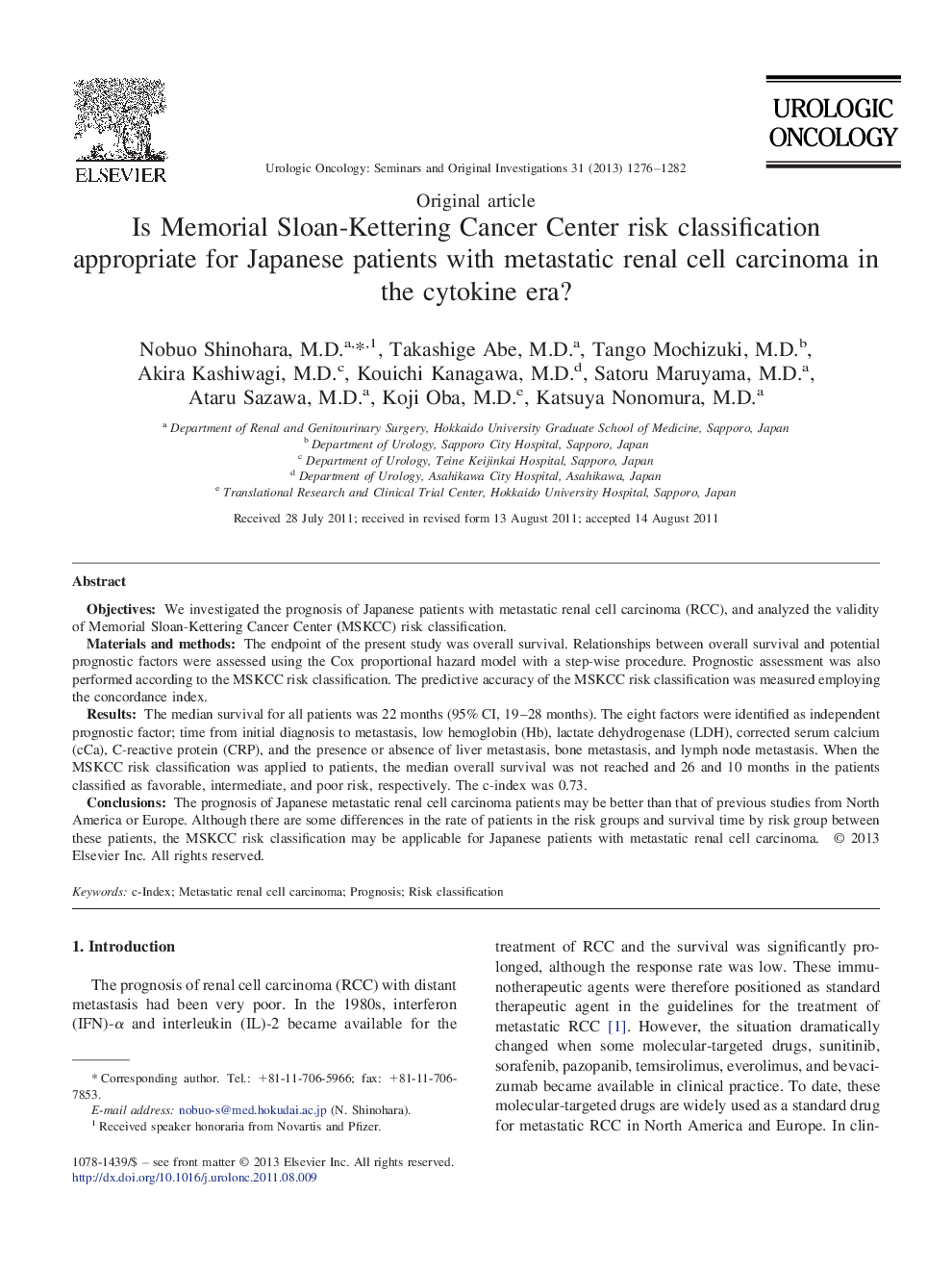| Article ID | Journal | Published Year | Pages | File Type |
|---|---|---|---|---|
| 3999926 | Urologic Oncology: Seminars and Original Investigations | 2013 | 7 Pages |
ObjectivesWe investigated the prognosis of Japanese patients with metastatic renal cell carcinoma (RCC), and analyzed the validity of Memorial Sloan-Kettering Cancer Center (MSKCC) risk classification.Materials and methodsThe endpoint of the present study was overall survival. Relationships between overall survival and potential prognostic factors were assessed using the Cox proportional hazard model with a step-wise procedure. Prognostic assessment was also performed according to the MSKCC risk classification. The predictive accuracy of the MSKCC risk classification was measured employing the concordance index.ResultsThe median survival for all patients was 22 months (95% CI, 19–28 months). The eight factors were identified as independent prognostic factor; time from initial diagnosis to metastasis, low hemoglobin (Hb), lactate dehydrogenase (LDH), corrected serum calcium (cCa), C-reactive protein (CRP), and the presence or absence of liver metastasis, bone metastasis, and lymph node metastasis. When the MSKCC risk classification was applied to patients, the median overall survival was not reached and 26 and 10 months in the patients classified as favorable, intermediate, and poor risk, respectively. The c-index was 0.73.ConclusionsThe prognosis of Japanese metastatic renal cell carcinoma patients may be better than that of previous studies from North America or Europe. Although there are some differences in the rate of patients in the risk groups and survival time by risk group between these patients, the MSKCC risk classification may be applicable for Japanese patients with metastatic renal cell carcinoma.
